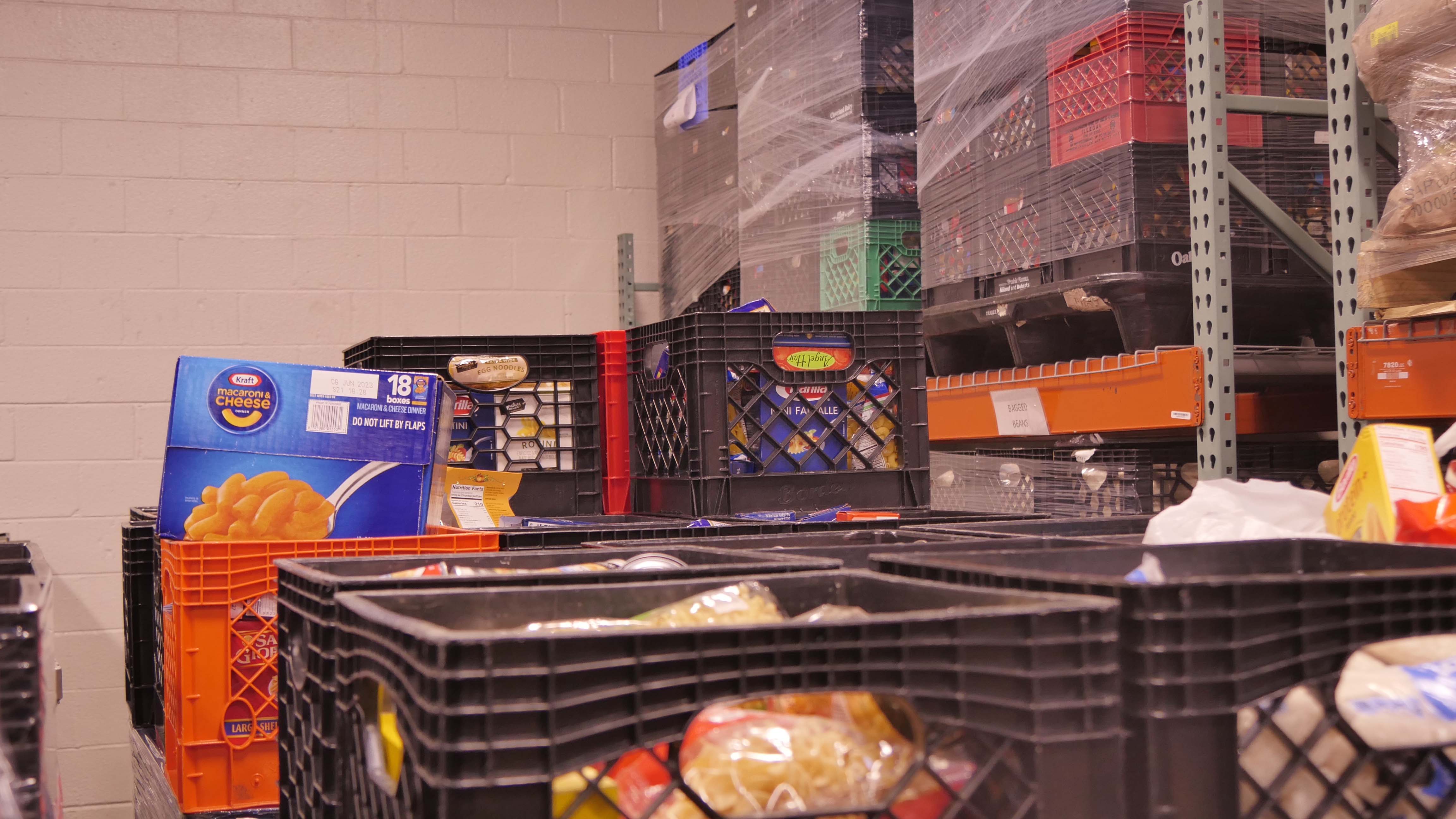Wednesday, November 16, 2022
A Sysco truck full of 3,000 turkeys that arrived on Friday is parked along the street. Volunteers had started unloading the turkeys earlier on Monday morning to stack their table as the last stop for the families in need who have come to pick up holiday food. A
 Volunteers wheel heavy boxes of food to the AFAC warehouse which is overflowing with donations from the annual Scouting for Food campaign.
Volunteers wheel heavy boxes of food to the AFAC warehouse which is overflowing with donations from the annual Scouting for Food campaign.
Volunteers from the National Association of Chain Drug Stores are manning the turkey table and assisting in the food line. “They are one of our best corporate supporters,” Jolie Smith, AFAC Director of Development says. “They support as with money, donations, and volunteers—all the three that help.”
Charles Meng, Executive Director of AFAC says that currently 2,516 families are receiving AFAC supplemental food each week, “close to the peak of the pandemic — just 150 short of the record number.”
Smith says their turkeys used to cost $25,000 but this year cost $60,000 due to inflation. “And we ordered them this summer when prices were cheaper. Food prices are so much higher, and it’s scary right now, no one can make ends meet. They have to come here. One third of the people we serve are children.”
Volunteers wheel large cardboard AFAC boxes across the parking lot to the warehouse. The boxes are filled with donations from the annual Scouting for Food drive that was held over the weekend. Smith says they expect to get about 40,000 pounds of food from the scouting drive.
She points to large bins of beans in the warehouse that have already been sorted.
“First we sort the cans and then we look at the expiration dates and take out those that have expired.” She explains it is important to treat people with dignity with the food that is offered.
Smith says at holiday time they receive large donations from the local grocery stores including ready made pies and also plenty of cans of pumpkin if people want to make their own pies. “We tend to buy root vegetables to give our clients choices of all different types they might want at holiday time.” She said that in addition to the basics which are always on the AFAC request list like tuna, canned beans and tomatoes, cooking oil, and peanut butter, they also suggest that at this time of the year donations can include basic baking supplies, “so people can make their special cake or cookies.”
Smith says she is concerned that donations are down. “I’m counting every little bit. Usually we get 25-30 percent of our donations in December. I hope we make our number. I started worrying about it in July. I think people making the donations are feeling the impact of inflation, too.”
Support for AFAC takes a number of different paths. You can distribute, drive, glean or grow. People pledge money or offer food contributions, and AFAC has over 2,000 volunteers a year. The volunteers provide 50,000 hours a year which allows $1.5 million in reduced staff costs. In addition, local soccer teams or neighborhood groups sponsor food drives and corporations support major events each year such as the annual Golf tournament. For further information visit the website at: afac.org